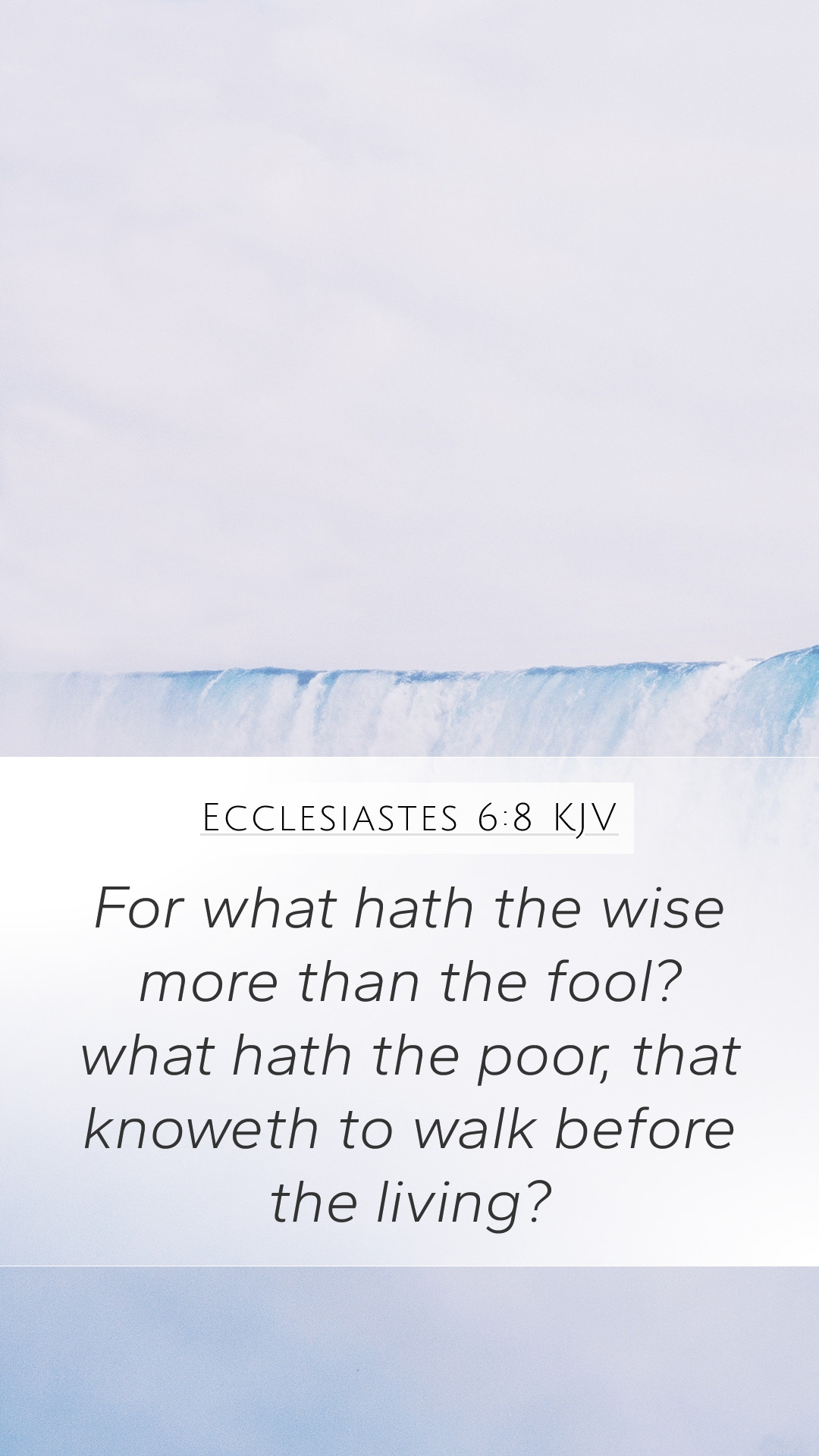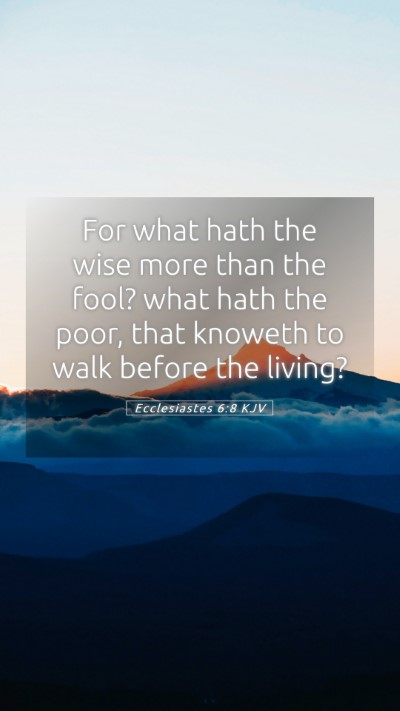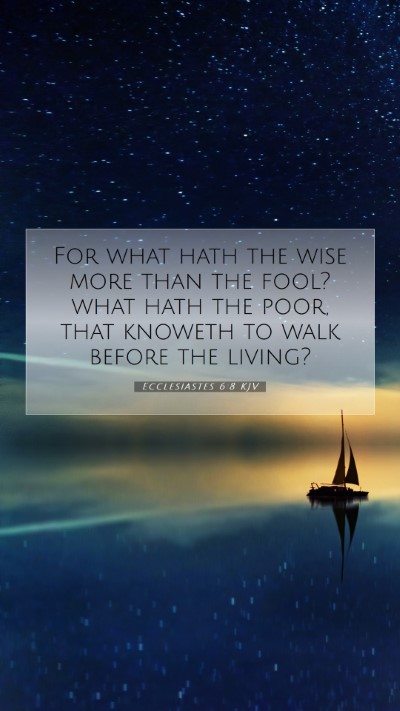Old Testament
Genesis Exodus Leviticus Numbers Deuteronomy Joshua Judges Ruth 1 Samuel 2 Samuel 1 Kings 2 Kings 1 Chronicles 2 Chronicles Ezra Nehemiah Esther Job Psalms Proverbs Ecclesiastes Song of Solomon Isaiah Jeremiah Lamentations Ezekiel Daniel Hosea Joel Amos Obadiah Jonah Micah Nahum Habakkuk Zephaniah Haggai Zechariah MalachiEcclesiastes 6:8 Meaning
What is the meaning of Ecclesiastes 6:8?
For what hath the wise more than the fool? what hath the poor, that knoweth to walk before the living?
Ecclesiastes 6:8 Bible Verse Meaning
Understanding Ecclesiastes 6:8 - A Comprehensive Bible Verse Commentary
Ecclesiastes 6:8 states, "For what hath the wise more than the fool? what hath the poor, that knoweth to walk before the living?" This verse raises profound questions about wisdom, wealth, and the inequalities of life. Here, we delve into the insights provided by public domain commentaries to enhance our understanding of Ecclesiastes 6:8.
Bible Verse Meanings and Interpretations
The meaning of Bible verses often requires contextual analysis. In this case, Solomon, the author of Ecclesiastes, reflects on the futility of human endeavors, particularly concerning wisdom and wealth. Let's explore the interpretations provided by esteemed commentators:
-
Matthew Henry's Commentary:
Henry suggests that this verse emphasizes the vanity of human pursuits—specifically, that mere knowledge does not elevate one's status without practical application. Both the wise and the foolish may face similar fates, thus calling into question the value of wisdom in the grand scheme of life.
-
Albert Barnes' Notes:
Barnes emphasizes the existential query posed in the verse. He articulates that wisdom does not necessarily yield better outcomes than folly when facing the inevitable trials of existence. The verse highlights the shared human experience regardless of intellectual or economic status.
-
Adam Clarke's Commentary:
Clarke points out the significance of 'walking before the living,' implying an acknowledgment of one's place and purpose in the world. He underscores that knowing how to conduct oneself in life is of utmost importance, perhaps more so than mere wisdom or wealth.
Scripture Analysis: Themes and Importance
The overarching theme in Ecclesiastes 6:8 is the exploration of life’s inequities and the ultimate futility of competing for wisdom or wealth. Here are key elements found in the verse:
- Wisdom vs. Foolishness: Both possessors of wisdom and folly encounter life’s uncertainties; thus, understanding Scripture is crucial for navigating these complexities.
- Wealth and Poverty: The verse questions the benefits of wealth without wisdom, inviting Bible study groups to assess what truly enriches life.
- The nature of existence: Ecclesiastes continuously reflects on the transitory nature of worldly pursuits, a profound theme in biblical exegesis.
Bible Study Insights
For those involved in online Bible study or seeking Bible study tools, Ecclesiastes 6:8 serves as a prompt for discussion on life priorities. It raises significant questions:
- What does it mean to truly live wisely?
- How can we apply the lessons from this verse to our daily lives?
- What value does wisdom hold in the face of life’s uncertainties?
Cross References
Understanding Ecclesiastes 6:8 can be enriched by examining related verses, such as:
- Proverbs 1:7: "The fear of the Lord is the beginning of knowledge: but fools despise wisdom and instruction."
- Ecclesiastes 2:15: "Then said I in my heart, As it happeneth to the fool, so it happeneth even to me; and why was I then more wise?"
- Job 28:12: "But where shall wisdom be found? and where is the place of understanding?"
Conclusion: Application of Ecclesiastes 6:8
In conclusion, Ecclesiastes 6:8 challenges us to reflect on the nature of our pursuits. Whether in a Bible study setting or personal reflection, the verse calls for an examination of how we define wisdom and success. By engaging with this scripture, we can cultivate a deeper understanding of what it means to live a meaningful life amid the inherent uncertainties that accompany existence.


